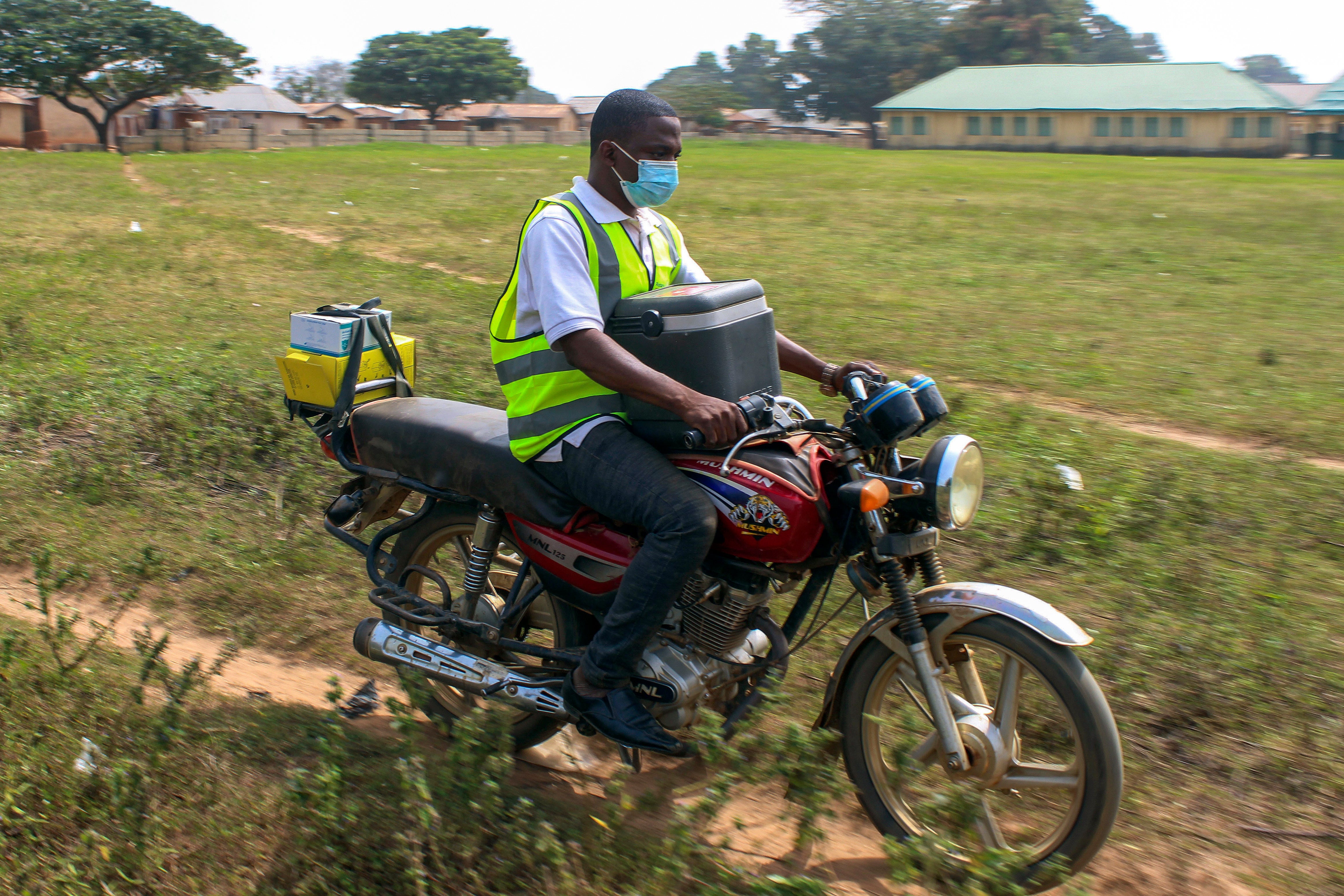Nigeria to reject vaccine donations with short shelf lives
Authorities in Nigeria have announced that the West African country will no longer accept COVID-19 vaccines with short shelf lives after it was unable to use 1 million doses before they expired

Your support helps us to tell the story
From reproductive rights to climate change to Big Tech, The Independent is on the ground when the story is developing. Whether it's investigating the financials of Elon Musk's pro-Trump PAC or producing our latest documentary, 'The A Word', which shines a light on the American women fighting for reproductive rights, we know how important it is to parse out the facts from the messaging.
At such a critical moment in US history, we need reporters on the ground. Your donation allows us to keep sending journalists to speak to both sides of the story.
The Independent is trusted by Americans across the entire political spectrum. And unlike many other quality news outlets, we choose not to lock Americans out of our reporting and analysis with paywalls. We believe quality journalism should be available to everyone, paid for by those who can afford it.
Your support makes all the difference.Nigeria will no longer accept COVID-19 vaccines with short shelf lives after 1 million doses have expired in Africa s most population nation before the shots could be used, a government official said.
While some of the doses given to Nigeria were within a few months of expiring, authorities have said that other donated vaccines had just weeks left to be given to people before becoming unusable.
Faisal Shuaib, head of Nigeria’s National Primary Health Care Development Agency, told reporters that expired vaccines not used in time now will be destroyed. He did not specify what Nigerian officials would consider to be too short of a shelf life.
Nigeria has only been able to fully vaccinate 1.9% of its 206 million people. While at least 30 million doses are currently available, authorities say the rush to distribute almost-expired ones has created an additional burden.
Other African countries also have struggled to use donated doses in time. Malawi burned nearly 20,000 expired vaccines earlier year and South Sudan also said it had to destroy tens of thousands of doses.
Matshidiso Moeti, the World Health Organization’s regional director for Africa, said Tuesday that the problem of expiring vaccines is a global one. The number of doses that have gone unused in Africa has represented less than a quarter of 1%.
“It is necessary to dispel the impression that even as we are expressing concern about access to vaccine supplies, there are millions of doses being wasted, expiring in Africa," she said. “That is not the case.”
Two weeks after Nigeria recorded its first omicron variant case, the country is starting to see an increase in the number of new infections, Shuaib said. However, there has been no evidence so far of increased hospitalizations, he added.
___
Follow all AP stories on the pandemic at https://apnews.com/hub/coronavirus-pandemic.